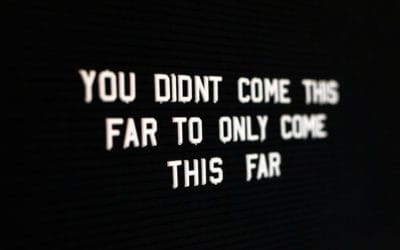Physician burnout is costly to both the institutions where we work and to the individual physician, too. It was originally described as a three-pronged insult characterized as depersonalization, feeling a lack of accomplishment, and emotional exhaustion. However, the term “burnout” has come under fire recently. Some favor the term “moral injury” instead. Today’s post will describe the importance of both terms, and how moral injury fits into the equation.
If you have strong feelings on which term is most appropriate, leave a comment after reading through today’s post. Or, join the discussion in the Physician Philosopher’s Facebook Group (for Physicians only).
Physician Burnout
The structure of medicine often feels like a dedicated road to burnout. We enter our 20’s with the most altruistic of callings: to help people. With an optimistic view of being a healer, we feel destined to do great things. Somewhere in between that point and when we finish residency training, many of us lose that optimism.
Our feeling of optimism has been replaced by a jaded and cold feeling towards our jobs and the current landscape of healthcare. We are surrounded by insurance companies, electronic medical records (EMR’s), and hospitals who won’t love us back. All the while, we are upside down in student loan and consumer debt.
We sometimes become numb to patient outcomes, good or bad. We are also becoming numb to the idea that the broken system might change. And we are certainly numb to the debt burden we carry while we try to carry what feels like the weight of the world on our backs.
As we burn the wick on both ends, we start to view our patients as objects and feel that all we have accomplished hasn’t amounted to much. Over the past 30 years, the term “burnout” has been the most utilized term to describe this phenomenon. And, it is obviously not a good thing.
Is it really the physician who is burned out, though? Does burnout imply that it is the doctor’s fault? Or are we being burned by the system instead?
Causes of Physician Burnout
Determining the ultimate cause of physician burnout has proved enlightening.
Physician burnout surveys reveal that most of the causes have little to do with the individual person, and much more to do with the system that surrounds them. I’d argue that the number 1 cause of physician burnout is that our doctors have been stripped of their autonomy.
This lack of autonomy is manifested in many ways.
They cannot see patients as often as they like, or for as long as they want. Instead, we have a computer screen that requires us to document our work. And we can’t just document it. We must used these glorified cash registers that we call EMR’s to get our orders to go through. These EMR’s often obstruct patient care more often than they aid in the process.
And when they do finally work, we can anticipate the patient phone call a few days later saying that the insurance company has decided the test you ordered isn’t medically necessary. When you call the company, you can expect to speak to someone with no medical training.
The Rub with Physician Burnout
Despite the fact that medical students are the most satisfied graduate students coming into school – and leave with the lowest rates in both of those categories – many continue to point the finger at the person who struggles. Of course, this is preposterous. Burnout is not caused by the individual. It is caused by the system.
You’ll notice that the majority of causes described above (and elsewhere in the surveys that have been conducted) say little about physician burnout being caused by the doctor. It is not their lack of resilience, intelligence, or work ethic – which should be obvious given that these same characteristics are required to become a doctor.
This is where the rub is with the term “physician burnout.” The term implies that the cause – and, therefore, the solution – is rooted in the individual rather than in the system. It misplaces the blame, and expects the wounded to figure things out on their own.
This might explain why the most often cited ways to deal with “burnout” are individual solutions. They say that we need to meditate or pray more; or that we need to become more resilient. We need to pick ourselves up by our boot straps!
It is for these reasons that the term “burnout” has come under fire. It can produce victim blaming that proves unhelpful in solving a systematic problem.
Moral Injury
Given the issues mentioned above, a new term has come about that seems to capture a different picture. The term Moral Injury was first used in medicine by Dr. Talbot and Dr. Dean.
Moral Injury is also attributed to another workforce: soldiers.
While physicians do not go through combat, they do experience the same secondary PTSD that soldiers experience when they see unnecessary morbidity and mortality that they are powerless to prevent. In a field meant to provide health, physicians often feel unable to provide the help that they know the patient needs – and that they could provide if allowed.
Being raised to have a tremendous amount of respect for our country – and being the first male in about four generations not to go into the military – I don’t make that comparison lightly. It’s really the only thing that I’ve found that seems to have the same pathophysiology.
Dr. Talbot and Dr. Dean believe that this is all caused by the stripping away of the physician’s autonomy, and their being pulled in thousands of directions. They do not believe that it is caused by a lack of resilience or ingenuity. In fact, this is what they have to say about it from the article linked above:
“Physicians are smart, tough, durable, resourceful people. If there was a way to MacGyver themselves out of this situation by working harder, smarter, or differently, they would have done it already.”
Is Moral Injury a Better Term?
On this blog, I’ve used the term burnout because it is the common language for this discussion. Using the term “moral injury” does not produce the same level of understanding from colleagues, administrators, or the general public.
Despite that, it might be time for a change. We need to use the term that best encompasses the multiple facets of the problem. And moral injury does that.
So, stick with me as I use both terms to describe this phenomenon as “burnout” and “moral injury” on this blog. I’ll use them a bit interchangeably, but please know that in no way do I place the blame for this problem on the physician. I am slow to blame the victim in this situation.
In the end, I realized that I simply cannot stand by as people point fingers at some of the most incredible people in existence while physician suicide happens at epidemic rates higher than that of even our military.
Take Home
Here is where the rubber meets the road. Moral injury is a systematic problem that will require systematic solutions. We must demand more from those who control the environment in which we work.
Until that happens, we must take matters into our own hands by fighting back with financial independence. Pave your way to have a voice, to cut back if you need, and to leave this mess altogether if those in control refuse to fix the problem.
What do you think? Moral injury or burn out? Why do you prefer the term?
Leave a comment below.
TPP





I have worked in the medical insurance industry for over 20 years and agree with you. As an agent I work closely with my clients to find in-network providers and have to explain while they may not be the best providers for what they need those are the ones to choose, even though they may not be even close in proximity. The EMR’s are a nightmare, they don’t integrate with all the providers as they were supposed to and don’t cross reference as Obamacare demanded, software packages do not integrate–yet. As an agent I have learned to work thru the insurance companies phone systems to get claims paid, drugs accepted, and most things paid that were denied or excluded. I have had to fight with attorneys when a patient goes into collections. With all my years of experience, knowing all the lingo from providers to CPT codes and DX codes, even I sometimes experience burnout. And it just seems to get worse. I intercede for those that are sick because many do not have the stamina or means to fight the health insurance/medical nightmare. I have great empathy for all providers, to run a practice, keep help, pay costs, keep up with the ever changing rules, we in insurance go thru the same nightmare. I know the system, all around and many of my doctor friends retired and left the field, just not worth the aggravation. The younger people coming in to the medical/dental etc. and insurance careers operate differently, go to work, do the job, get in line to follow the system, do the best you can and move on. We that have been in these fields for a while demand more. Concierge docs in the Chicago area can operate intentionally different but not everyone can afford their services. My cell is 24/7 dealing with the medical and insurance issues. Some of my clients have used medical tourism and done well, others didn’t make it home alive. Now I am dealing with the opioid crisis, those suffering cancer and other painful conditions can no longer get the pain relief are required to use step therapy and I get the calls of the crying client in critical pain at 2 am. Any answers? We in medical insurance face the same burnout, and some of my great people I deal with in the insurance industry face the same–long hours, burnout, trying to deal with insurance issues that are hard to solve, we are all in this together, massive issues that just seem to get more complicated.
I think the only option in these seemingly unesecapable situations is to find your own exit hatch and go part time or find something different. Hopefully, we can change the system without having to pull that rip cord, though.
I do wonder how much of this is our own fault. (Not at the individual level but as a profession). In the past Doctors were the true captain of the ship and now we’ve basically been turned into another group of employed human capital.
I feel like as healthcare changed there was never a united physician voice. Much of the same divisions that are there globally about healthcare exist among physicians ourselves. Since we have been divided we have lost our place at the table. I feel like the physician financial independence movement is a good thing for us as individuals. However, I feel like we as a group of doctors need to rally around a few key points and get patients on board as well.
Completely agree. I think doctors won’t line up to be a part of that change until they feel like they have the option in case it doesn’t work out. Too much of what we do is out of fear or retribution sometimes
When you become a provider you have already lost the battle. Now where I practice insurance companies are buying medical groups and the designation of provider is the first step toward being replaced by a less trained “provider” that is younger and has less school debt but is “just the same but she really cares about the patient”.
Yeah, I am not a big fan of the term either. I know that others feel like the term helps provide a collegial atmosphere to work (i.e. it gets rid of the hierarchy), but honestly I think the term causes more confusion and leads to a lack of respect for the road we’ve had to hoe.
I have a number of close friends who are completing their residency in a nearby hospital. It’s been shocking to me how demanding their training is.
The way I look at it, it seems like the profession that exists to help all of us outside of medicine live a healthy and balanced life is part of a system that demands one of the most unbalanced and unhealthy lifestyles out there.
I don’t think anyone is saying that medicine or residency should be easy. But, at least from an outside perspective, it doesn’t seem like the system has to make it so difficult either. The system would hopefully make the human suffering you see more bearable. From your article, it doesn’t appear to be doing that.
Personally, I think that the term “moral injury” has a more profound connotation than “burnout,” and it does seem to suggest that an injustice is being done to the physician, where “burnout” does not carry that meaning.
I don’t think it has to be this way. And Ive told more than one person that when enough people finally take over who truly care about the residents well being (and not just their education) they will realize that we can provide exceptional educations without making them feel like they are drowning. The same goes for clinical practice for attendings.
When I was a second year med student, we had a couple of practicing docs welcome us into our new profession via a panel.
The first spoke of an intimate relationship with vulnerable people at their time of greatest need, of a skill that blended art and science to heal.
The second described us as glorified mechanics of the body and easily substituted cogs in Healthcare, Inc.
We were all furious at the doc who described us as widgets, and identified most with the healer. In retrospect, the latter had greater insight into the direction medicine was heading in.
Moral injury indeed. Well written, TPP.
That’s an interesting story and point of view, CD. I think many would relate to the second doctor.
Excellent post TPP. Moral injury needs to be addressed from multiple angles. From a systems level: Better work environments and patient loads, mechanisms to make work load efficient, and mentoring. On an individual angle: cutting back on work, optimizing life outside work, financial independence, and mindfulness play a role. The answer will have to be multi-factorial.
Completely agree. The answer will have many facets to it.
IMHO, I think both burnout and moral injury are occurring. They are just different.
For me, I think of burnout as symptoms and moral injury as the underlying disease.
Resilience training, meditation, and support groups can relieve the symptoms of burnout, but it does nothing to cure/treat the underlying disease.
Going back to the analogy, often times the medications that we prescribe as physicians often mask or treat symptoms, but it does little to treat the underlying disease. Think of hypertension, diabetes, and high cholesterol medications. They do nothing to treat the underlying disease; whereas lifestyle modifications and living a healthier life can.
The system is broken. A system that plagues physicians with the underlying disease of moral injury and the symptoms of burnout. The system needs to be fixed. The system needs a healthy dose of lifestyle modification and a prescription for a healthier life.
We are the crusaders for this lifestyle change!